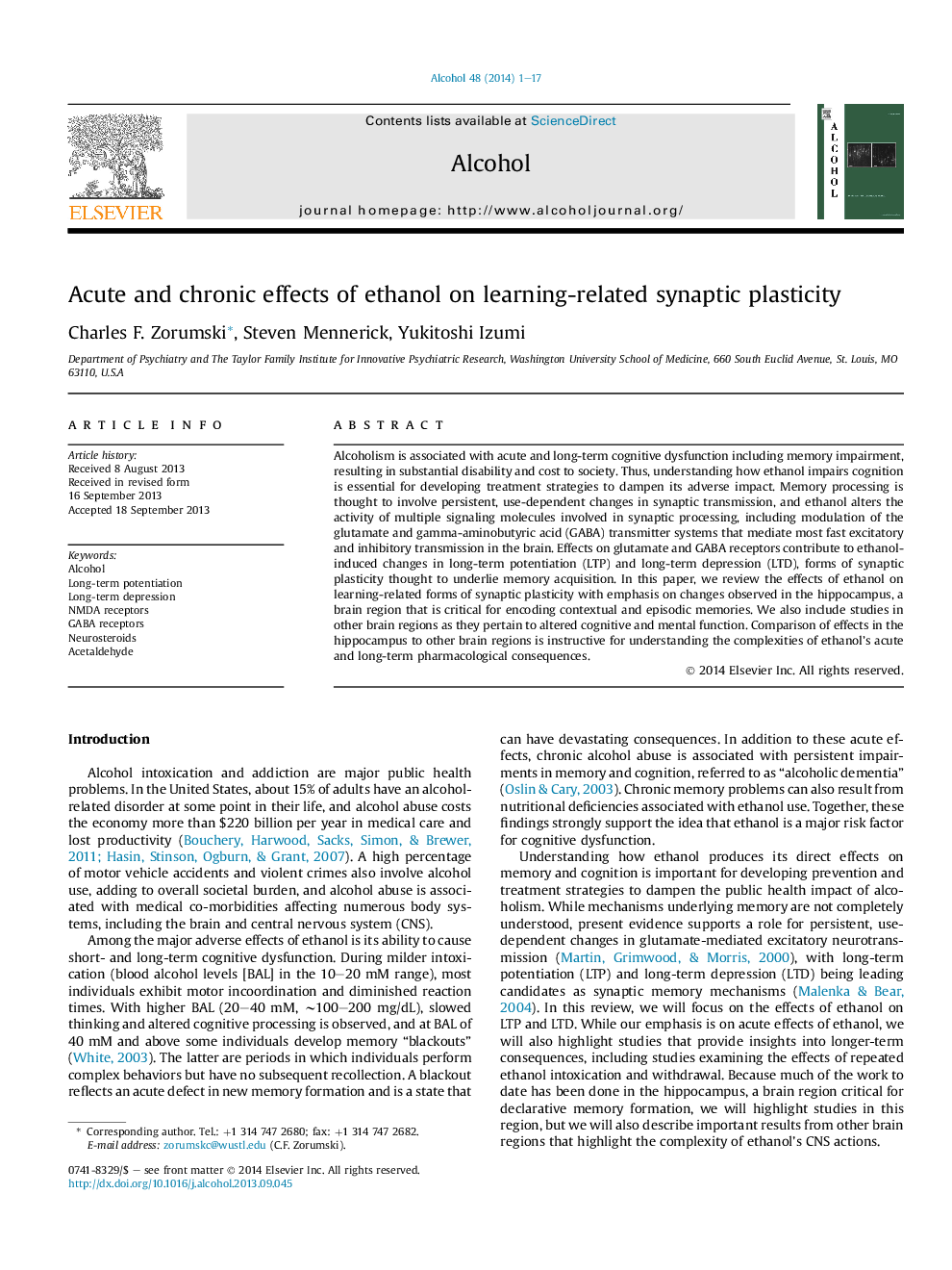| Article ID | Journal | Published Year | Pages | File Type |
|---|---|---|---|---|
| 1067116 | Alcohol | 2014 | 17 Pages |
Alcoholism is associated with acute and long-term cognitive dysfunction including memory impairment, resulting in substantial disability and cost to society. Thus, understanding how ethanol impairs cognition is essential for developing treatment strategies to dampen its adverse impact. Memory processing is thought to involve persistent, use-dependent changes in synaptic transmission, and ethanol alters the activity of multiple signaling molecules involved in synaptic processing, including modulation of the glutamate and gamma-aminobutyric acid (GABA) transmitter systems that mediate most fast excitatory and inhibitory transmission in the brain. Effects on glutamate and GABA receptors contribute to ethanol-induced changes in long-term potentiation (LTP) and long-term depression (LTD), forms of synaptic plasticity thought to underlie memory acquisition. In this paper, we review the effects of ethanol on learning-related forms of synaptic plasticity with emphasis on changes observed in the hippocampus, a brain region that is critical for encoding contextual and episodic memories. We also include studies in other brain regions as they pertain to altered cognitive and mental function. Comparison of effects in the hippocampus to other brain regions is instructive for understanding the complexities of ethanol's acute and long-term pharmacological consequences.
